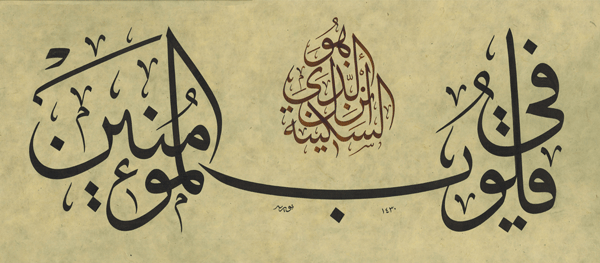Witnessing Light on the Spiritual Path
Light is the very material substrate of creation. The created forms of existence are cleaved within and subsist through His light. For «God is the Light of the heavens and the earth» (Allah nur al-samawat waʾl-arḍ), and it is through His light that the forms of creation are brought into existence. Moreover, existence is real insofar as it partakes in God’s light, and the accumulated layers of darkness, or the rust of other-than-God, is dispelled by the oneness of the Light. For the witnesser, everything is light, and the lights of God’s oneness shine forth brilliantly through all of His names and their properties. Light thus subjugates the darkness of multiplicity, and witnessing the light is the standard of spiritual traveling.
The provision of the Supreme Pen is light. The root of the human being is light, and his purpose is to acquire light. The veils between God and His creatures are light, and those who deny the light are journeying through the light. For where could there be darkness? Lo! Darkness is nonexistence, and nonexistence does not exist!
Light, moreover, is what makes things manifest, and God’s manifestation is infinite. Thus, God’s lights are infinite. Darkness itself is light at a certain level, because for a blind bat, darkness is the light that enables the bat to perceive.
Human beings are endowed with a light of inward vision (nur al-basira) as part of their innate human disposition. However, a stronger light is the light of unveiling (kashf) and witnessing (mushahada), and direct visionary witnessing is what determines the station of the spiritual traveler. However, to witness God’s light, the eye of the spiritual traveler must be identical to the reality of the light, since «faculties of sight do not perceive Him» (Q 6:103). So you must abandon eyesight in order to see His light. The people of certainty inhabit the presence of the lights. God adorns their inward vision with light of unveiling, and they read through the name of their Lord.
Adapted from the works of ʿAfif al-Din al-Tilimsani (d. 1291), a student of Ibn ʿArabi and Qunawi











